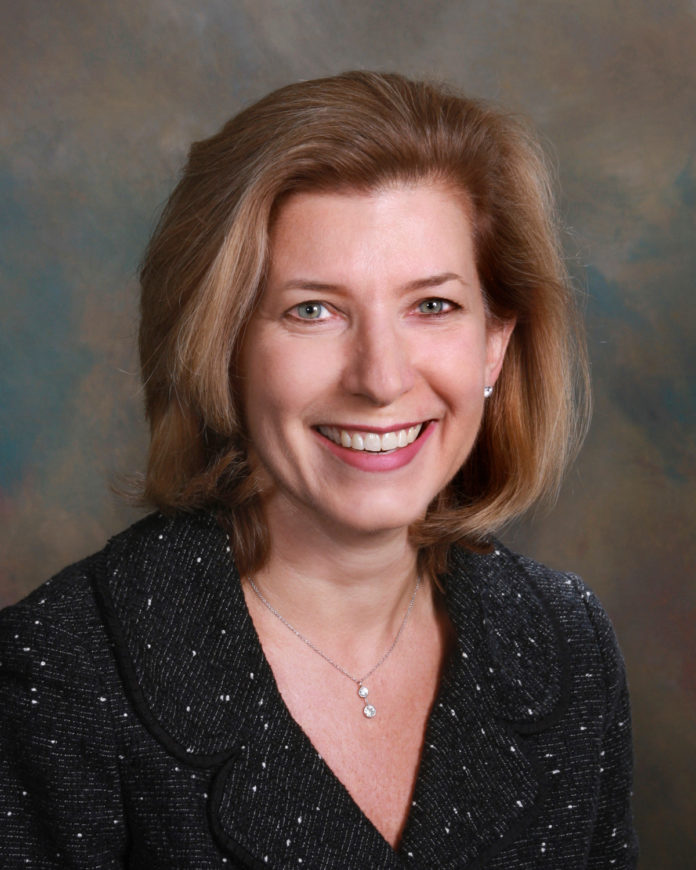
Dr. Theresa Graves, director of the Breast Center of the Comprehensive Cancer Center of Lifespan and director of the Center for Breast Care at University Surgical Associates in Providence, is an assistant professor of surgery (clinical) at the Warren Alpert Medical School at Brown University. After graduating from medical school at the University of Vermont in Burlington, she completed her residency in general surgery at the Walter Reed Army Medical Center in Washington, D.C., and her fellowship at the Institute of Surgical Research in San Antonio, Texas.
Avenues of Healing is a Lifespan-sponsored educational event focusing on cancer care, survivorship and stress management that will be held Saturday, Oct. 22 at the Crowne Plaza Hotel in Warwick. Graves, medical coordinator for the event, talked with Providence Business News about developments in breast cancer detection and treatment and the focus of Avenues of Healing.
PBN: Tell us about Avenues of Healing, its genesis and current sponsors, expected audience members and your role in the event.
GRAVES: Avenues of Healing is an annual celebration of health and wellness that provides education and updates regarding breast cancer treatment and healthy lifestyles for both breast cancer survivors and the interested public. It is a unique program developed and implemented through the Lifespan Community Health Service more than16 years ago. I was the founding physician and have played many roles, including panel speaker and moderator, and have remained Avenues of Healing’s medical consultant. We have a dedicated Avenues of Healing team that is committed to creating an excellent program that is current and inspirational.
Lifespan works with generous sponsors each year to make the event possible. This year’s program received support from Genomic Health, a California-based company providing genomic-based diagnostic tests, and HopeHealth, the largest non-profit hospice and palliative care provider in New England, whose affiliate members are Hope Hospice & Palliative Care Rhode Island, Hope Palliative Care Center, HopeHealth Massachusetts and Visiting Nurse of HopeHealth. Our in-kind media sponsors are Coast 93.3 and B101.
PBN: Who is the Avenues of Healing’s keynote speaker?
GRAVES: Marsha Hudnall, president of the Center for Mindful Eating and president and co-owner of Green Mountain at Fox Run, Vermont, is the keynote speaker. Her women’s retreat program pioneered the non-diet approach to health and healthy weight. This year’s Avenues of Healing will focus on mindfulness and mindful eating, and how those behaviors can impact someone diagnosed with breast cancer.
Breast cancer recurrence can be reduced by as much as 30 percent with attention to the appropriate diet and sufficient exercise. Paying attention to what we eat, our exercise activities and the lifestyle that we live encourages us to take ownership of our health and be involved in the healing process. Mindfulness is a state of awareness that gives us the opportunity to make the right choices. The mind-body connection is recognized as a pivotal component of medical treatment.
PBN: Can mindful eating and other non-medical interventions, such as yoga and other exercise, prevent or delay the onset of breast cancer?
GRAVES: In combination with a breast cancer-reducing Mediterranean diet, the addition of a weekly minimum of 150 minutes of exercise of any sort, including walking and yoga, assists in the maintenance of a healthy weight. This may further reduce the incidence of breast cancer as well as its recurrence.
PBN: What general recommendations on nutrition, stress, exercise, etc. should women 25 and older, both with and without breast cancer risk factors, follow?
GRAVES: Healthy lifestyles of diets with minimal red meat and high in fruits, vegetables and fiber, combined with regular exercise, can lead to risk reductions for breast cancer and many other health threats. The practical approach to mindful healthy eating while living an often chaotic life will be addressed on our panel by Chef Todd Seyfarth, program director of culinary nutrition at Johnson & Wales University.
PBN: Are there any new developments in breast cancer detection and/or treatments that are cause of optimism?
GRAVES: Breast cancer treatment has continued to evolve over the past 50 years. This disease has been systemically studied in an effort to modify our treatment to decrease mortality and the morbidity of the disease as well as the morbidity of the treatments. Surgery for breast cancer has evolved from radical mastectomy to breast preservation. If a mastectomy is necessary, skin- and nipple-sparing total mastectomies are available. Such breast reconstruction has gone far to eliminate the debilitating deformity of breast cancer treatment.
Dr. Christine Emmick, a board-certified general surgeon who is a member of the Comprehensive Cancer Center’s multidisciplinary breast clinic at The Miriam Hospital and an assistant clinical professor of surgery at the Warren Alpert School of Medicine at Brown University, will discuss these surgical evolutions during this year’s panel.
The axillary dissection with debilitating removal of lymph nodes has similarly evolved, through systematic research studies for the patients’ benefits, and is now approaching extinction. Sentinel lymph node dissections that limit the number of nodes removed, the use of radiation as alternative axillary treatment and genomic analysis as alternative diagnostic tools are all developments that have decreased patients’ morbidity. Dr. Kara Lynne Leonard, a radiation oncologist at Rhode Island Hospital and an assistant professor of radiation oncology at the Warren Alpert Medical School, will address issues related to axillary lymph nodes during this year’s Avenues of Healing panel.
Current and ongoing research in genomic analysis continues to provide personalized treatment for individual patients and lowers unnecessary treatment while maximizing cures. This has been an exciting topic of research that continues to evolve to the benefit of our breast cancer patients, and has been discussed in Avenues of Healing panels on several occasions.
Avenues of Healing is free and open to the public. Registration is required, as seating is limited. To register, visit http://www.cancer.lifespan.org/avenues-of-healing/ or call (401) 444-4800.












